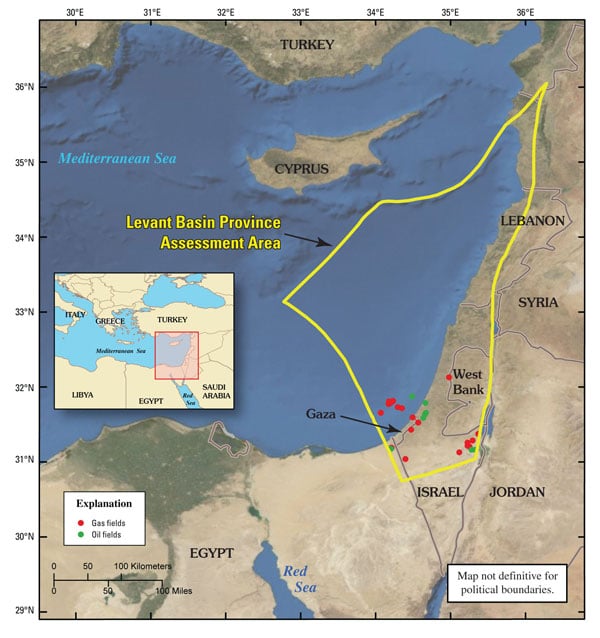Israel Steals Gaza’s Offshore Natural Gas: $15 Billion Deal with Jordan
ガザの海域(領域)にある海底ナチュラルガスがイスラエルに盗まれている!150億ドル!

Photo: “Gaza electricity; ‘enemy of the (Jewish) state’” wrote the Middle East Online during the 2008-2009 Operation Cast Lead.愛らしい子供たち、電気を盗まれたガザ!
While Gazans suffer from daily power shutdowns, Israel is signing an important deal to sell gas to Jordan, gas which, researchers say, was stolen from Palestinians.ガザのガスが盗まれヨルダンに売られる!
In addition to confiscating Palestine’s energy resources, Israel has destroyed Gaza’s only power station in its latest military offensive.
On July 29, 2014, RT reported:
Over a million people in Gaza could be without electricity after Israeli tank shells hit the fuel depot of the enclave’s only power station, causing it to shut down. Its director, Mohammed al-Sharif, said, “The power plant is finished.” (Gaza’s only power plant shut down by Israeli shelling, RT, July 29, 2014) ガザの発電所は爆破された。
The Middle East Monitor reported September 4, 2014 that a Memorandum of Understanding ”is due to be signed between Israel and Jordan in the reservoir of Leviathan to export Israeli natural gas to Jordan during the next 15 years with a total value of $15 billion”. (Jordan to buy $15bn of Israeli gas, Middle East Monitor, September 4, 2014.)
Israel’s first natural gas export deal will also be signed by “the Leviathan field partner Noble Energy Inc. on behalf of itself and its partners Delek Group Ltd. units Avner Oil and Gas LP and Delek Drilling Limited Partnership and Ratio Oil Exploration (1992) LP.” (Leviathan partners signing $15b Jordanian gas deal, Globes, Israel business news, on September 3, 2014)
We may recall that in the wake of the Israeli bombing and invasion under Operation Cast Lead, “Palestinian gas fields were de facto confiscated by Israel in derogation of international law”: 国際法を無視してパレスチナのガス田はイスラエルに没収されている。
A year following “Operation Cast Lead”, Tel Aviv announced the discovery of the Leviathan natural gas field in the Eastern Mediterranean “off the coast of Israel.”
At the time the gas field was: “ … the most prominent field ever found in the sub-explored area of the Levantine Basin, which covers about 83,000 square kilometres of the eastern Mediterranean region.”
Coupled with Tamar field, in the same location, discovered in 2009, the prospects are for an energy bonanza for Israel, for Houston, Texas based Noble Energy and partners Delek Drilling, Avner Oil Exploration and Ratio Oil Exploration. (Felicity Arbuthnot, Israel: Gas, Oil and Trouble in the Levant, Global Research, December 30, 2013)
The Gazan gas fields are part of the broader Levant assessment area. (Michel Chossudovsky, War and Natural Gas: The Israeli Invasion and Gaza’s Offshore Gas Fields, Global Research, January 8, 2009)
The Times of Israel said this first export deal “makes Israel chief energy supplier for [the] kingdom.” (Marissa Newman, Israel signs $15 billion gas deal with Jordan, The Times of Israel, September 3, 2014)
The Israeli business news outlet Globe reports that the U.S. State Department “assisted” both countries in signing the deal which gives Israel the capacity to “use its position to achieve strategic aims”:
The deal has been brought to fruition with the assistance of Israel Minister of Natural Infrastructures, Energy and Water Resources Silvan Shalom and the US State Department.
US Secretary of State John Kerry’s special envoy and coordinator for international energy affairs Amos Hochstein is in Jordan for the signing ceremony. Silvan Shalom will be required to approve the deal before contracts are finally signed.
This deal significantly changes the economic strategic relations between Israel and Jordan and makes Israel an energy producer and exporter that can use its position to achieve strategic aims. Discussions over Israeli gas exports have rumbled on in Israel for the past few years and ultimately it was decided that Israel can export 40% of its offshore natural gas reserves. (Leviathan partners signing $15b Jordanian gas deal, Globes, Israel business news, on September 3, 2014)
According to the Middle East Monitor, Jordan approved last month a recommendation “calling for supplying Jordan with natural gas from Palestinian water of the Gaza Marine”:
“The Jordanian cabinet approved, last month, the recommendation of the Committee on Economic Development, calling for supplying Jordan with natural gas from the gas field discovered in the Palestinian water of the Gaza Marine, after coordination with the Palestinian Authority.
The Palestinians own a stake in the Gaza Marine field, located 35 kilometres away from the coast of the Gaza Strip, which was discovered at the end of the 90s, nothing has been extracted from it yet.” (Middle East Monitor, op. cit.)
Will this deal between Israel and Jordan jeopardize this approval?
One thing is certain, this new deal making Israel the “chief energy supplier for the kingdom” and making Israel an important energy player able ”use its position to achieve strategic aims”, sheds a new light on the purported objectives of the relentless Israeli attacks against Gaza.
In 2007 a year before Operation Cast Lead in which Palestinian gas fields were confiscated, Israeli Defense minister and former Israeli Defence Force (IDF) chief of staff Moshe Ya’alon wrote that “Israel needs additional natural gas sources”. However, purchasing gas from Palestinians, he claimed, would be “tantamount to Israel’s bankrolling terror against itself” and that gas revenues cannot be “a key driver of an economically more viable Palestinian state”. His statement below clearly shows the links between Israel’s military operations and Palestine’s oil and gas reserves:
British Gas is supposed to be the crown jewel of the Palestinian economy, and provide part of the solution to Israel’s pressing energy needs. The British energy giant, now called the “BG Group,” and its local partners – the Palestinian Authority under Mahmoud Abbas and the private, Palestinian-owned Consolidated Contractors Company (CCC) – are currently involved in advanced negotiations to sell to Israel massive amounts of natural gas – reserves of nearly 1.4 trillion cubic feet – that BG first discovered in 2000 off the Gaza coast. The market value of the gas has been estimated at $4 billion. Therefore, sale of the gas to Israel would mean a billion-dollar windfall for the PA and, potentially, for the Palestinian people.
Unfortunately, British assessments, including those of former Prime Minister Tony Blair, that Gaza gas can be a key driver of an economically more viable Palestinian state, are misguided. Proceeds of a Palestinian gas sale to Israel would likely not trickle down to help an impoverished Palestinian public.
For Israel, the need for BG’s gas may have already taken a toll. It is possible that the prospect of an Israeli gas purchase may have played a role in influencing the Olmert cabinet to avoid ordering a major IDF ground operation in Gaza …
Clearly, Israel needs additional natural gas sources, while the Palestinian people sorely need new sources of revenue. However, with Gaza currently a radical Islamic stronghold, and the West Bank in danger of becoming the next one,Israel’s funneling a billion dollars into local or international bank accounts on behalf of the Palestinian Authority would be tantamount to Israel’s bankrolling terror against itself. Therefore, an urgent review is required of the far-reaching security implications of an Israeli decision to purchase Gaza gas. (Moshe Yaalon,Does the Prospective Purchase of British Gas from Gaza Threaten Israel’s National Security?, Jerusalem Center for Public Affairs, October 19, 2007)
What needs to be understood from that declaration is that Israel will not allow Palestinians to have a viable economy by exploiting their natural resources. The “terrorist threat” is just a pretext to maintain Palestine under military occupation and continue to steal its land and resources.
Independent researchers have indicated that these military operations as well as the illegal blockade of Gaza are in fact all about oil and gas:
What is now unfolding is the integration of these adjoining gas fields including those belonging to Palestine into the orbit of Israel. (see map below).
It should be noted that the entire Eastern Mediterranean coastline extending from Egypt’s Sinai to Syria constitutes an area encompassing large gas as well as oil reserves. (Chossudovsky, op. cit.)
For further information on the Palestinian offshore gaz fields, we suggest the following GR articles:
War and Natural Gas: The Israeli Invasion and Gaza’s Offshore Gas Fields




















